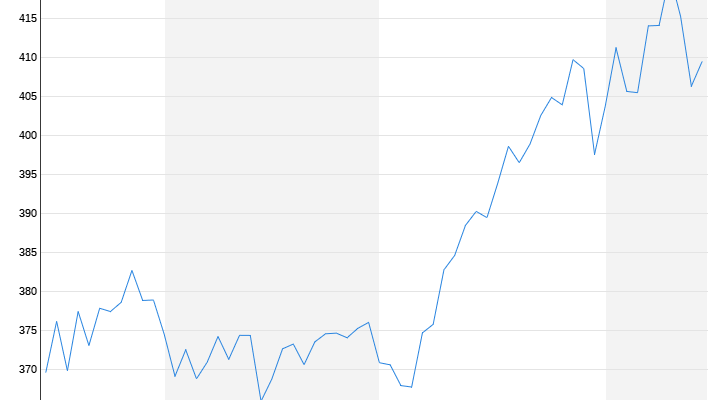“So much trust”
Microsoft is investing billions in AI in Germany
February 15, 2024, 12:21 p.m
Listen to article
This audio version was artificially generated. More info | Send feedback
It is the largest single investment in its history: Microsoft is investing 3.3 billion euros to expand its data center capacities in Germany. One federal state in particular can be happy. The Chancellor anyway.
Microsoft will invest almost 3.3 billion euros in Germany over the next two years to massively expand its data center capacity for applications in the field of artificial intelligence (AI) and cloud computing. Microsoft President Brad Smith announced this in Berlin during a conversation with Chancellor Olaf Scholz.
The largest single investment in Microsoft’s 40-year history in Germany also includes an AI training program intended to reach up to 1.2 million people. The investment funds will flow primarily to North Rhine-Westphalia, where Microsoft wants to set up a new cloud region. The group is looking for physical proximity to major customers such as Bayer and RWE in order to keep data transit times (latency) between the data centers and the applications as low as possible.
Hesse also benefits
Hesse will also benefit from the Microsoft investments. The Rhine/Main region is Germany’s leading location for data centers because of the large Internet node DE-CIX in Frankfurt. The existing Microsoft cloud region Rhine/Main will be further expanded.
Microsoft is making the investment “because we have so much trust in Germany,” said Smith. According to him, the funds will be used to significantly expand AI centers in Germany and training programs in AI.
Scholz praises his government
Scholz emphasized that an investment of this magnitude “doesn’t happen every day.” “We are currently seeing large-scale investments here,” said the Chancellor, referring to the areas of batteries, cars, chips and pharmaceuticals. At the same time, the SPD politician praised his federal government. With the immigration law, this created the possibility that the necessary specialists, for example in the high-tech sector, could come to Germany.
In addition, the data access law in the medical sector is ensuring a boost in investment in the pharmaceutical sector. As a further element, the federal government wants to make investments more attractive with large legislative packages, for example to speed up planning. “We are (…) probably the most successful export economy in the world given the size of our country,” continued Scholz.
NRW Prime Minister Hendrik Wüst viewed Microsoft’s investment as “a strong signal for Germany and a great contribution to structural change in the Rhenish region.” With this billion-dollar decision, Microsoft is making a significant contribution to sustainably driving forward the transformation of the economy in North Rhine-Westphalia. “The fact that a global player is making such an investment in North Rhine-Westphalia is a sign of trust and the result of concrete location policy.”
Germany at the forefront of investment announcements
With a total investment of 3.5 billion US dollars (3.26 billion euros), Germany leads the list of investment announcements from the world’s leading software company: Microsoft President Smith promised last November that 2.5 would be made in Great Britain by 2026 Invest billions of pounds (2.9 billion euros) to drive the growth of AI applications. Just over a month earlier, during a visit to Australia, he had promised an investment of 5 billion Australian dollars (around 3 billion euros) in the AI sector.
Microsoft is a leading player in the international AI market, also because the software company invested several billion dollars early on to invest in the Californian AI startup OpenAI. The San Francisco company presented its text robot ChatGPT to a broader public in November 2022, triggering a wave of AI.
Microsoft has meanwhile invested billions more to build up large computing capacities for training AI. The group uses AI technology, among other things, in its search engine Bing and as a “copilot” in its office programs. The main competitor of the software giant from Redmond is Google with its AI program Gemini.
